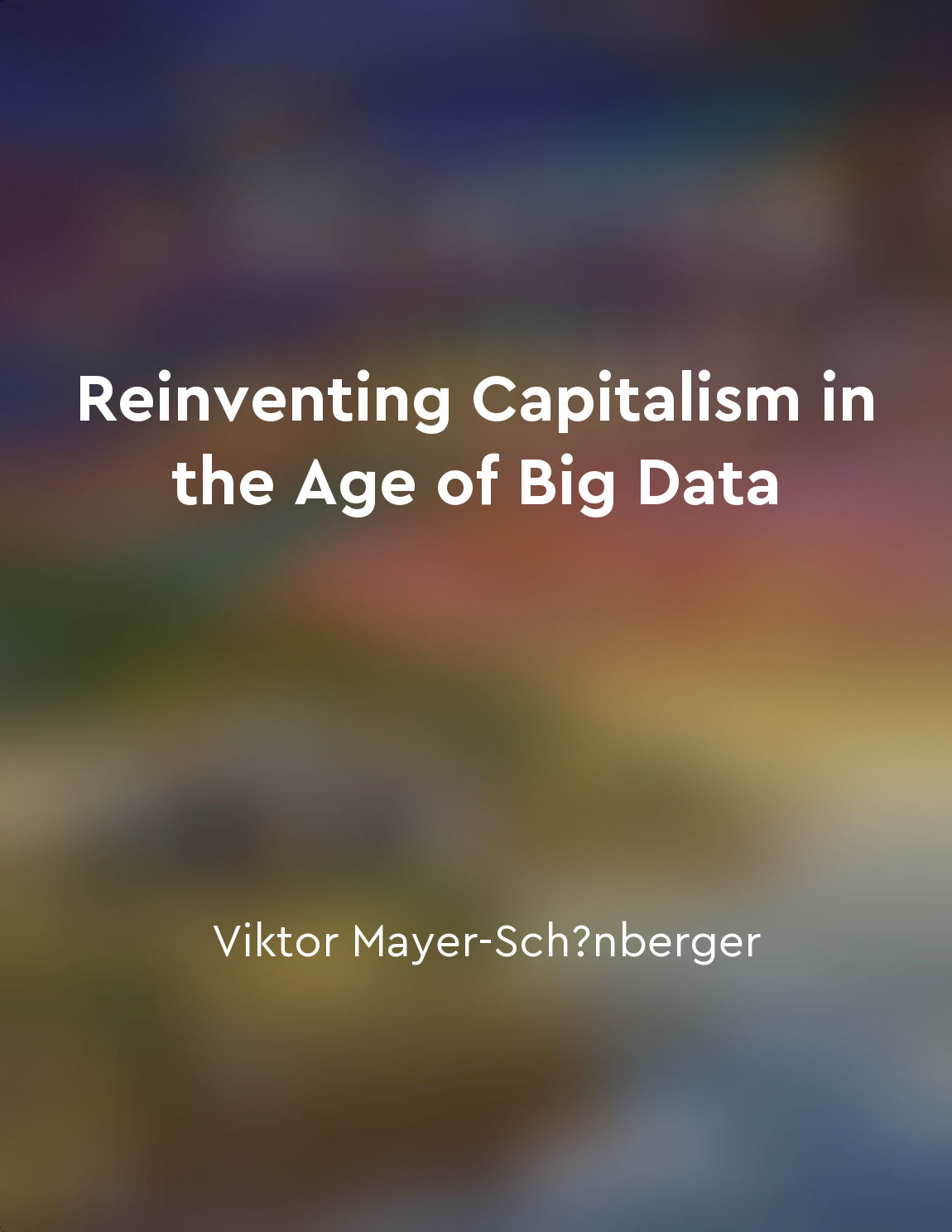Datadriven decision-making can lead to better outcomes from "summary" of Reinventing Capitalism in the Age of Big Data by Viktor Mayer-Schönberger,Thomas Ramge
Data-driven decision-making is a key principle in the age of big data. By harnessing the power of data, organizations can make informed choices that lead to better outcomes. Instead of relying on gut feelings or intuition, decision-makers can turn to data to guide their strategies. This approach allows for more accuracy and precision in decision-making, reducing the likelihood of errors or biases influencing the outcome. One of the main advantages of data-driven decision-making is its ability to uncover patterns and trends that may not be apparent through traditional methods. By analyzing large datasets, organizations can gain valuable insights into customer behavior, market trends, and competitive landscapes. This information can then be used to inform strategic decisions that are more likely to succeed in the long run. Furthermore, data-driven decision-making enables organizations to measure the impact of their actions more effectively. By tracking key performance indicators and metrics, decision-makers can assess the success of their strategies in real-time. This allows for quick adjustments and course corrections, leading to more agile and responsive decision-making processes. In addition, data-driven decision-making promotes a culture of accountability and transparency within organizations. By basing decisions on data and evidence, organizations can ensure that choices are made objectively and without bias. This can help to build trust among stakeholders and create a more collaborative and productive work environment.- Data-driven decision-making has the potential to revolutionize the way organizations operate in the age of big data. By leveraging the power of data, organizations can make more informed choices that lead to better outcomes. This approach not only enhances decision-making processes but also promotes accountability, transparency, and innovation within organizations.
Similar Posts
The future belongs to agile and adaptable organizations
In a world where machines are taking over more and more tasks, the ability to adapt and be agile is becoming increasingly cruci...
Data scientists use Python and R for analysis
Data scientists rely heavily on programming languages like Python and R to carry out their data analysis tasks. These languages...
Understand customer problems
To create successful products, it is essential to deeply understand the problems that customers face. By understanding customer...

Data can reveal patterns and insights that were previously hidden
In the age of big data, information is being generated at an unprecedented rate, providing businesses and organizations with an...
The human element remains crucial in a technologydriven world
In a world increasingly dominated by technology, it is easy to overlook the importance of the human element. However, as Malcol...

